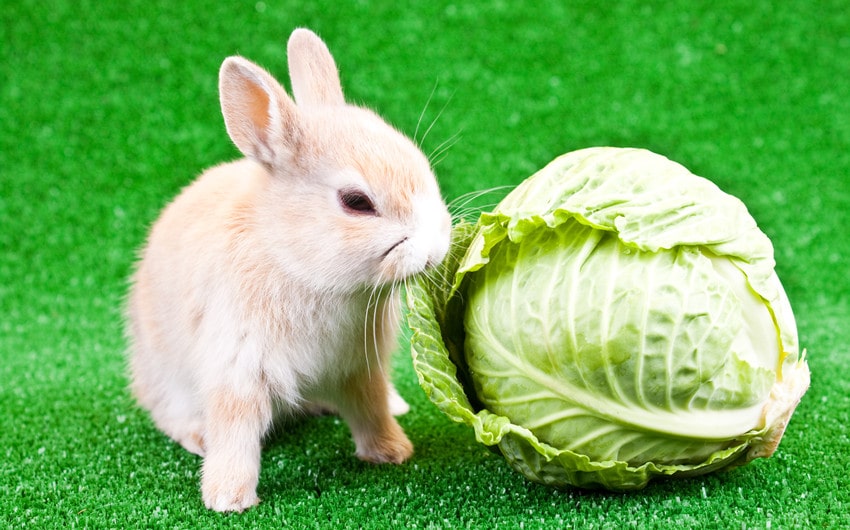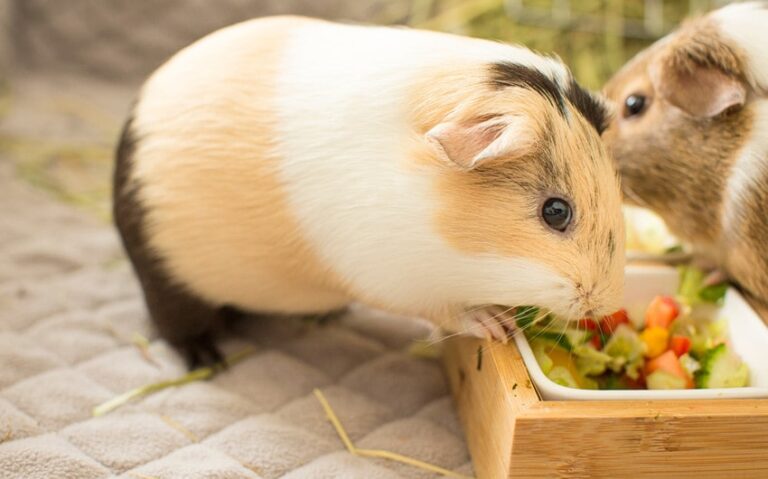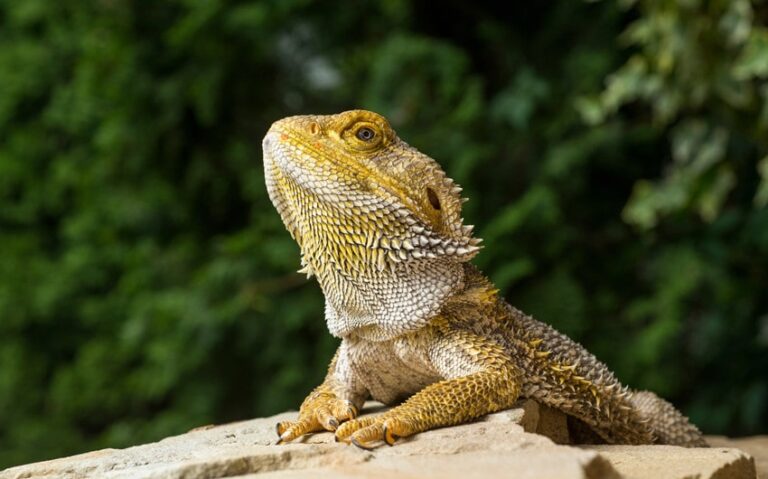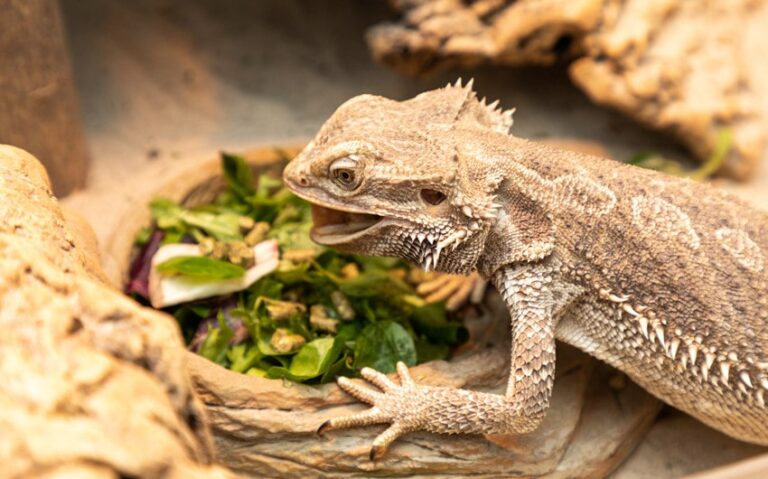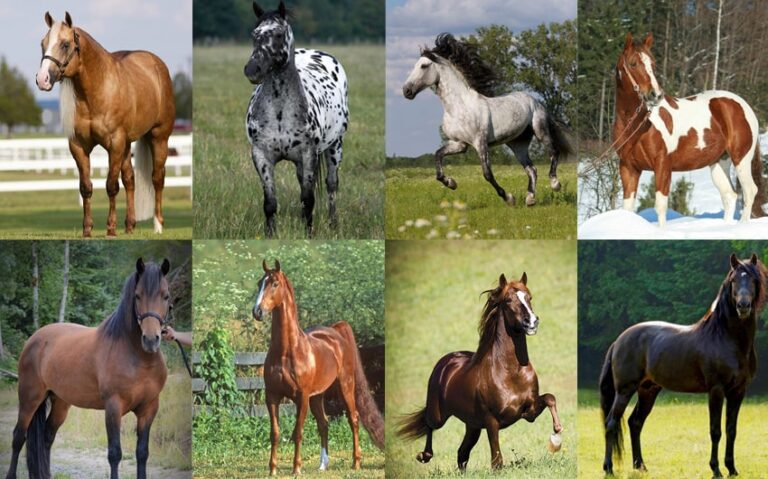Can Rabbits Eat Cabbage? What You Need to Know First
Rabbits are known for their love of fresh greens, but not every vegetable is safe for them. If you’re wondering, can rabbits eat cabbage, the answer is yes, but with some caution. Cabbage can be a nutritious addition to your rabbit’s diet, providing essential vitamins and fiber. However, it should be given in moderation to avoid digestive issues like gas or bloating. Understanding the right way to introduce cabbage can help keep your rabbit healthy and happy. In this guide, we’ll explore the benefits, risks, and tips for safely feeding cabbage to your furry friend.
Is Cabbage Safe for Rabbits?
Yes, cabbage is generally safe for rabbits to eat, but it should be given in moderation and with some precautions. Cabbage is a leafy green vegetable that can provide several nutritional benefits for rabbits, such as vitamins C and K, as well as fiber that supports healthy digestion. However, due to its high water content and certain compounds that can cause gas, it’s important to introduce cabbage slowly into your rabbit’s diet. Starting with small amounts and monitoring your rabbit’s response is the best way to ensure it doesn’t cause any adverse effects.
There are different types of cabbage, such as green, red, and savoy, and all of them are safe for rabbits when fed properly. Green cabbage is the most common variety and is generally well-tolerated by most rabbits. Red cabbage is also safe and contains additional antioxidants, but it can sometimes cause changes in the color of your rabbit’s urine, which is harmless but can be surprising. Savoy cabbage, with its crinkled leaves, is another good option that adds variety to your rabbit’s diet. However, avoid feeding large amounts of cabbage stems as they can be tougher to digest compared to the leafy parts.
While cabbage is safe, it’s essential to remember that every rabbit is different. Some rabbits may tolerate cabbage well, while others might be more sensitive to its effects. Always keep an eye on your rabbit after introducing cabbage to their diet, looking for signs of digestive discomfort such as bloating, gas, or changes in stool. If any of these symptoms occur, reduce the amount or eliminate cabbage from their diet entirely. By feeding cabbage in moderation and observing your rabbit’s response, you can safely incorporate this leafy green into their diet as an occasional treat.
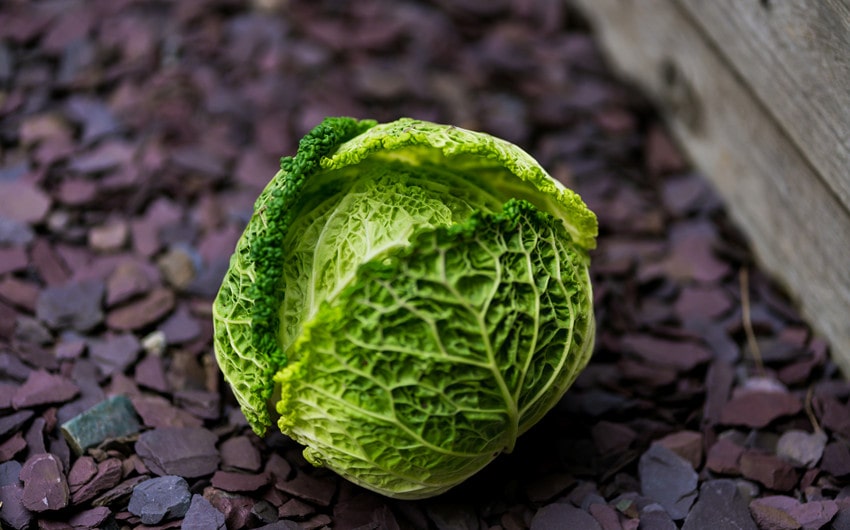
Nutritional Benefits of Cabbage for Rabbits
Cabbage can be a great addition to your rabbit’s diet, offering a range of essential nutrients that contribute to their overall health. Let’s explore the specific nutritional benefits of cabbage for rabbits:
• Rich in Vitamins and Antioxidants
Cabbage is packed with vitamins, particularly vitamin C and vitamin K, which are crucial for maintaining a rabbit’s health. Vitamin C acts as an antioxidant that helps boost the immune system, protecting your rabbit from common illnesses and infections. While rabbits typically produce their own vitamin C, having it in their diet can provide additional support, especially in times of stress or illness. Vitamin K, on the other hand, plays a vital role in blood clotting and bone health, ensuring your rabbit’s skeletal structure remains strong and resilient.
Cabbage also contains other beneficial antioxidants, such as anthocyanins in red cabbage, which help reduce inflammation and promote overall well-being. These antioxidants work by neutralizing harmful free radicals in your rabbit’s body, contributing to a longer, healthier life. Including a variety of colored cabbages, like red and green, can enhance these antioxidant benefits, adding a nutritional boost to your rabbit’s meals.
• High Fiber Content for Digestive Health
Fiber is one of the most important components of a rabbit’s diet, and cabbage provides a good source of dietary fiber that supports healthy digestion. The fiber in cabbage helps keep your rabbit’s digestive system moving smoothly, promoting regular bowel movements and preventing common issues like constipation. This is especially important for rabbits, as their digestive systems are highly sensitive and rely on a constant intake of fibrous foods to function properly.
Additionally, fiber helps maintain a healthy gut flora, which is essential for the proper absorption of nutrients. Including fibrous vegetables like cabbage can complement your rabbit’s primary diet of hay, which should always be the main source of fiber. By adding cabbage in moderation, you can provide variety while supporting your rabbit’s gut health.
• Low in Calories but Nutrient-Dense
Cabbage is low in calories, making it an ideal snack for rabbits that won’t contribute to unwanted weight gain. Despite being low in calories, cabbage is nutrient-dense, meaning it provides a good amount of essential vitamins and minerals without adding excess energy to your rabbit’s diet. This makes it a healthy option that can be fed alongside other vegetables without the risk of overfeeding.
The combination of low calories and high nutrient content makes cabbage an excellent choice for rabbits who need a variety of vegetables to keep their diet interesting and balanced. Offering cabbage as part of a rotation of other leafy greens ensures your rabbit gets a well-rounded mix of nutrients, supporting their overall health and well-being.
• Supports Hydration
Cabbage has a high water content, which can help keep your rabbit hydrated, especially during hot weather or when they need extra moisture in their diet. Proper hydration is crucial for rabbits, as it helps regulate body temperature, supports kidney function, and aids in digestion. While fresh water should always be available, including water-rich vegetables like cabbage can help supplement your rabbit’s hydration needs naturally.
Potential Risks of Feeding Cabbage to Rabbits
While cabbage offers many nutritional benefits, there are some potential risks associated with feeding it to rabbits that owners should be aware of. Understanding these risks can help you provide cabbage safely and avoid any adverse effects on your pet’s health.
• Digestive Issues: Gas and Bloating
One of the primary concerns with feeding cabbage to rabbits is its potential to cause digestive problems, such as gas and bloating. Cabbage, like other cruciferous vegetables, contains complex carbohydrates and sulfur compounds that can ferment in the rabbit’s digestive system, leading to excessive gas production. Rabbits have sensitive digestive systems, and too much gas can cause discomfort, pain, and even serious conditions like gastrointestinal stasis, a potentially life-threatening issue where the digestive system slows down or stops.
To minimize the risk of gas and bloating, it’s essential to feed cabbage in small amounts and observe your rabbit’s reaction. If your rabbit shows signs of discomfort, such as a distended belly, lack of appetite, or changes in behavior, it may be best to reduce or eliminate cabbage from their diet.
• Calcium Content and Bladder Stones
Cabbage contains moderate levels of calcium, which, when consumed in large amounts, can contribute to the formation of bladder stones in rabbits. Rabbits excrete excess calcium through their urine, and if their diet is too high in calcium, it can crystallize and form stones, leading to painful urinary issues. To prevent this, it’s important to balance cabbage with other low-calcium vegetables and monitor the overall calcium intake from all dietary sources.
Feeding cabbage occasionally as part of a varied diet helps reduce the risk of calcium-related problems. It’s also helpful to ensure your rabbit has access to fresh water at all times, as adequate hydration can aid in the proper elimination of excess calcium.
• Overfeeding and Nutritional Imbalance
While cabbage can be a healthy addition to a rabbit’s diet, overfeeding it can disrupt the nutritional balance. Cabbage should only be one component of a diverse diet that includes plenty of hay, fresh water, and a mix of other vegetables. Relying too heavily on cabbage can lead to an imbalance, depriving your rabbit of other essential nutrients found in a broader range of greens and veggies.
It’s crucial to introduce cabbage slowly and offer it as a supplement rather than a staple, ensuring that your rabbit receives a varied and balanced diet that meets all of their nutritional needs.
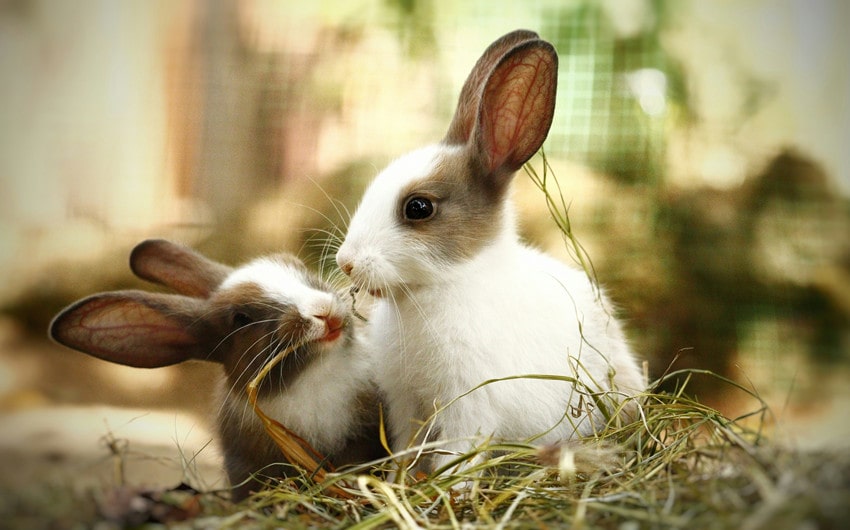
How to Properly Prepare Cabbage for Rabbits
Proper preparation of cabbage is key to ensuring it’s safe and enjoyable for your rabbit. Here are some tips on how to prepare cabbage correctly for your furry friend:
• Wash Thoroughly
Before feeding cabbage to your rabbit, it’s essential to wash it thoroughly under cold running water. This step helps remove any dirt, pesticides, or contaminants that could be harmful to your rabbit. Even if you purchase organic cabbage, it’s important to clean it well to ensure it’s as safe as possible for consumption.
• Chop into Manageable Pieces
Rabbits have small mouths and delicate digestive systems, so chopping the cabbage into small, manageable pieces makes it easier for them to eat and digest. Cut the cabbage into bite-sized pieces, including both the leaves and softer parts of the stems, as long as they are not too tough. Avoid offering large, tough stems, which can be harder for rabbits to chew and digest.
• Start with Small Portions
When introducing cabbage to your rabbit’s diet, start with a small portion to see how they react. A few small pieces are usually enough for a first taste. Monitor your rabbit for any signs of digestive discomfort or changes in behavior. If they tolerate it well, you can continue to offer cabbage occasionally as a treat.
• Serve Fresh and Raw
Always serve cabbage fresh and raw, as cooking can strip it of essential nutrients that are beneficial to your rabbit. Avoid offering wilted or old cabbage, as it may have lost its nutritional value and could upset your rabbit’s stomach. Fresh, crisp cabbage is not only more appealing but also ensures your rabbit gets the maximum benefit from the vegetable.
Other Leafy Greens Safe for Rabbits
In addition to cabbage, there are many other leafy greens that are safe and nutritious for rabbits. Offering a variety of greens helps keep your rabbit’s diet balanced and provides a range of essential vitamins and minerals.
• Romaine Lettuce
Romaine lettuce is an excellent leafy green for rabbits, providing hydration, fiber, and essential vitamins without the high calcium levels found in some other greens. Unlike iceberg lettuce, which has little nutritional value and can cause digestive issues, romaine is safe and beneficial. Its crunchy texture is also great for promoting dental health.
• Kale
Kale is packed with vitamins A, C, and K, making it a nutrient-dense option for rabbits. However, due to its high calcium content, it should be fed in moderation. Offering kale a few times a week as part of a varied diet can provide excellent nutritional benefits without the risk of calcium overload.
• Spinach
Spinach is another leafy green that rabbits love, offering a rich source of iron, calcium, and antioxidants. While it’s nutritious, spinach contains oxalates that can bind calcium and potentially contribute to bladder stones if fed in large amounts. It’s best to serve spinach occasionally and in combination with other low-calcium vegetables.
• Dandelion Greens
Dandelion greens are a favorite among rabbits and are highly nutritious, providing vitamins A, C, and K, along with a good amount of fiber. These greens are safe to feed regularly, and their slightly bitter taste can be refreshing for rabbits. Be sure to source dandelion greens from areas free of pesticides or pollution to ensure they’re safe.
• Cilantro and Parsley
Herbs like cilantro and parsley are safe for rabbits and can add a burst of flavor to their meals. These herbs are rich in vitamins A and C and have a refreshing taste that many rabbits enjoy. As with all greens, it’s important to feed them in moderation to maintain a balanced diet.
Offering a mix of these leafy greens alongside cabbage ensures that your rabbit receives a wide range of nutrients while keeping their meals interesting and enjoyable. Always observe your rabbit’s response to new foods and adjust their diet to suit their individual needs for optimal health.

